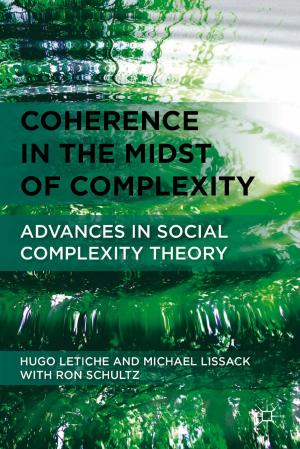Nabokov and the Question of Morality
Aesthetics, Metaphysics, and the Ethics of Fiction
Nonfiction, Religion & Spirituality, Philosophy, Aesthetics, Fiction & Literature, Literary Theory & Criticism, Theory| Author: | ISBN: | 9781137592217 | |
| Publisher: | Palgrave Macmillan US | Publication: | August 31, 2016 |
| Imprint: | Palgrave Macmillan | Language: | English |
| Author: | |
| ISBN: | 9781137592217 |
| Publisher: | Palgrave Macmillan US |
| Publication: | August 31, 2016 |
| Imprint: | Palgrave Macmillan |
| Language: | English |
The first collection to address the vexing issue of Nabokov’s moral stances, this book argues that he designed his novels and stories as open-ended ethical problems for readers to confront. In a dozen new essays, international Nabokov scholars tackle those problems directly while addressing such questions as whether Nabokov was a bad reader, how he defined evil, if he believed in God, and how he constructed fictional works that led readers to become aware of their own moral positions. In order to elucidate his engagement with aesthetics, metaphysics, and ethics, Nabokov and the Question of Morality explores specific concepts in the volume’s four sections: “Responsible Reading,” “Good and Evil,” “Agency and Altruism,” and “The Ethics of Representation.” By bringing together fresh insights from leading Nabokovians and emerging scholars, this book establishes new interdisciplinary contexts for Nabokov studies and generates lively readings of works from his entire career.
The first collection to address the vexing issue of Nabokov’s moral stances, this book argues that he designed his novels and stories as open-ended ethical problems for readers to confront. In a dozen new essays, international Nabokov scholars tackle those problems directly while addressing such questions as whether Nabokov was a bad reader, how he defined evil, if he believed in God, and how he constructed fictional works that led readers to become aware of their own moral positions. In order to elucidate his engagement with aesthetics, metaphysics, and ethics, Nabokov and the Question of Morality explores specific concepts in the volume’s four sections: “Responsible Reading,” “Good and Evil,” “Agency and Altruism,” and “The Ethics of Representation.” By bringing together fresh insights from leading Nabokovians and emerging scholars, this book establishes new interdisciplinary contexts for Nabokov studies and generates lively readings of works from his entire career.















